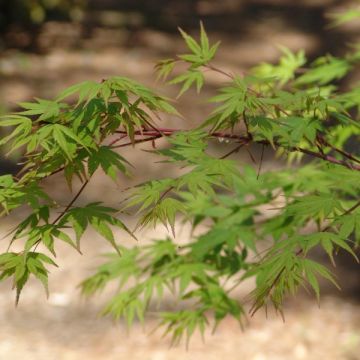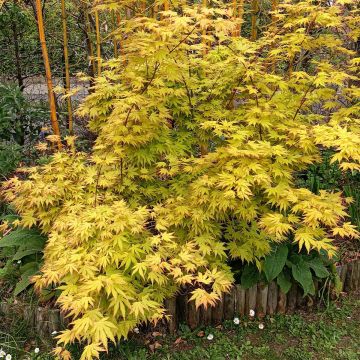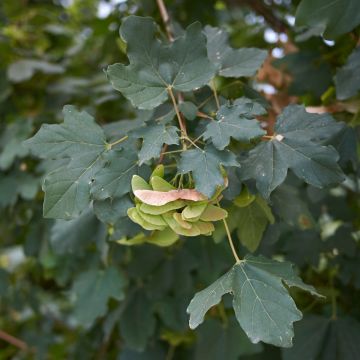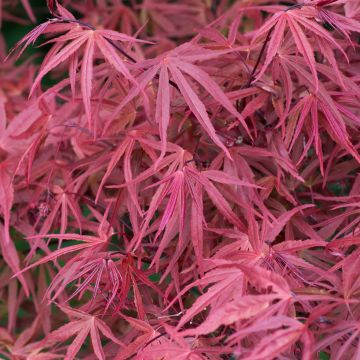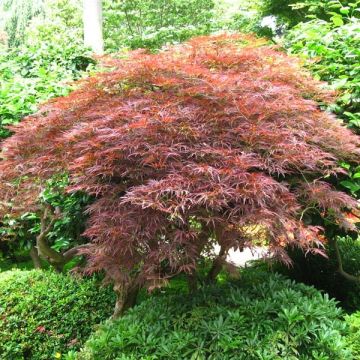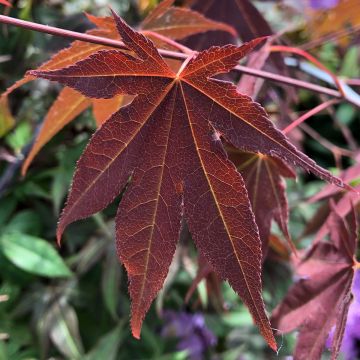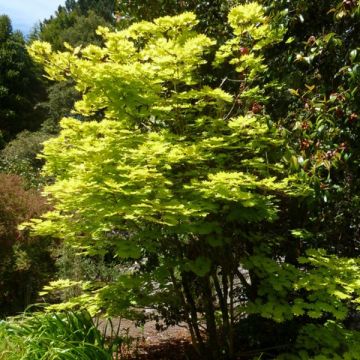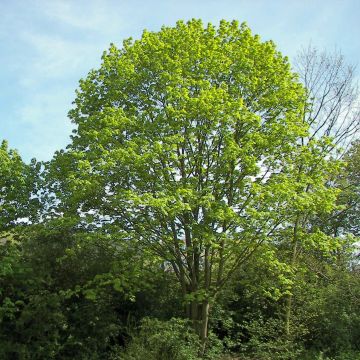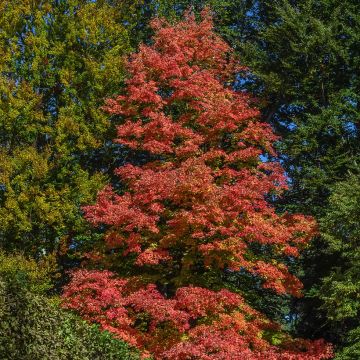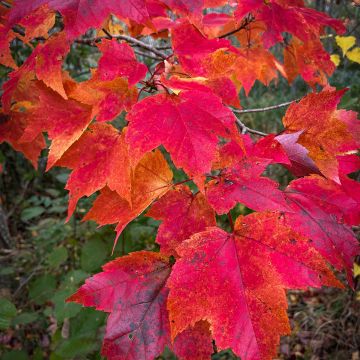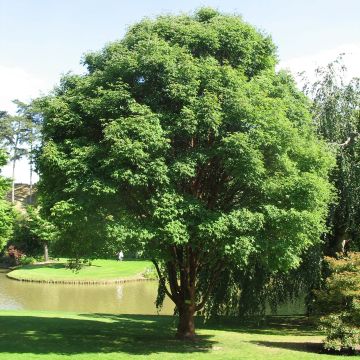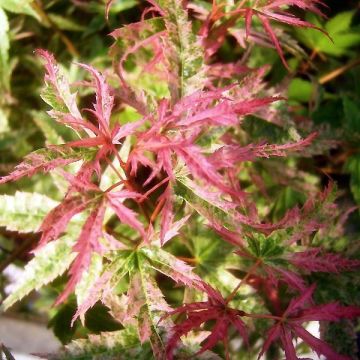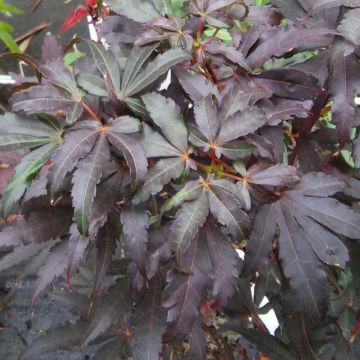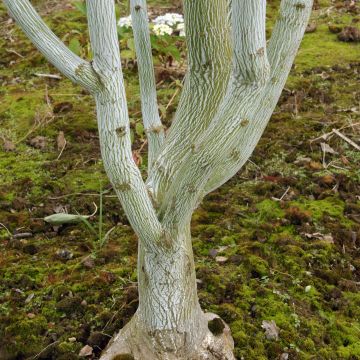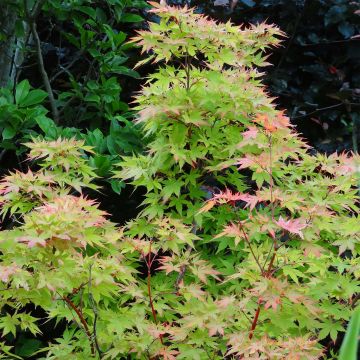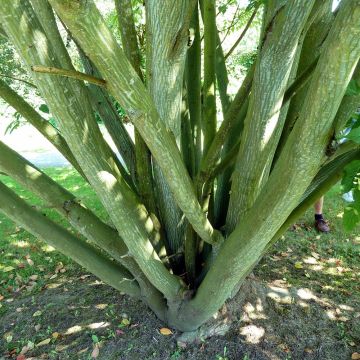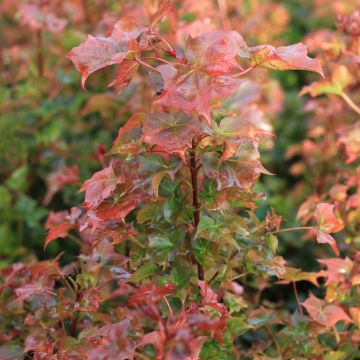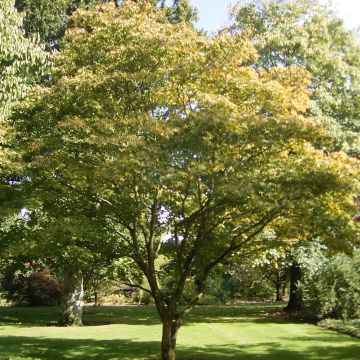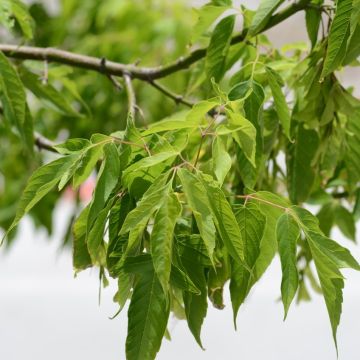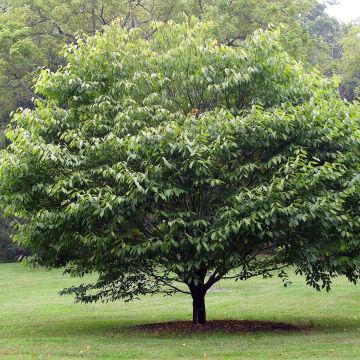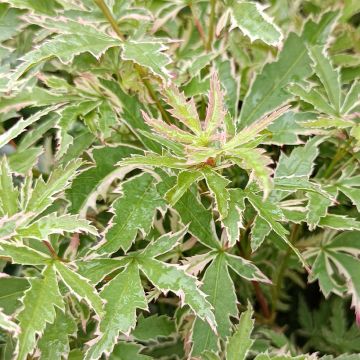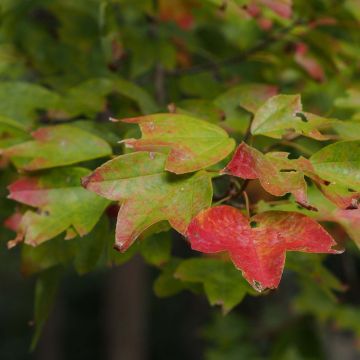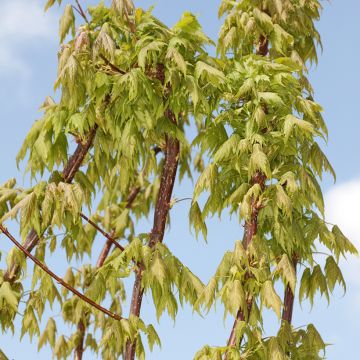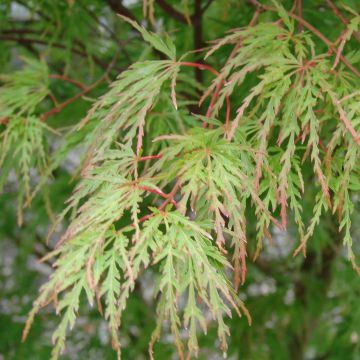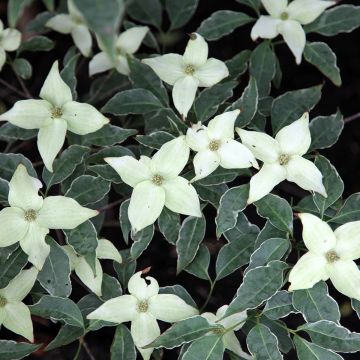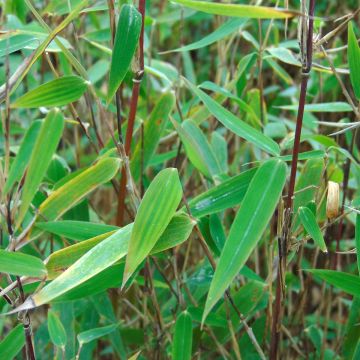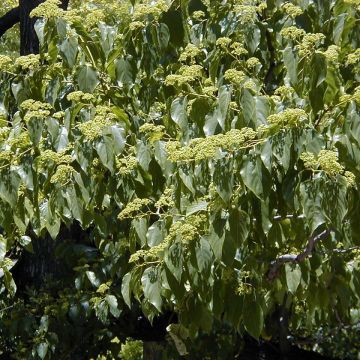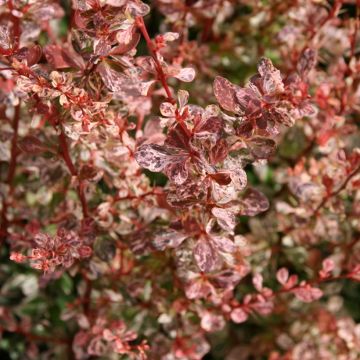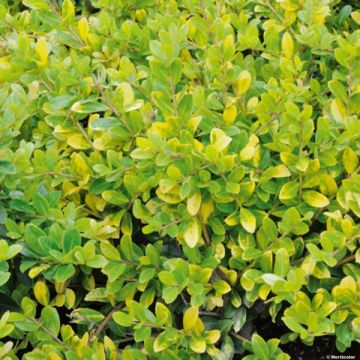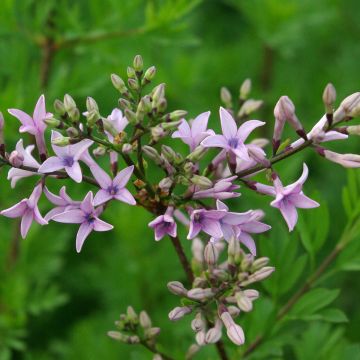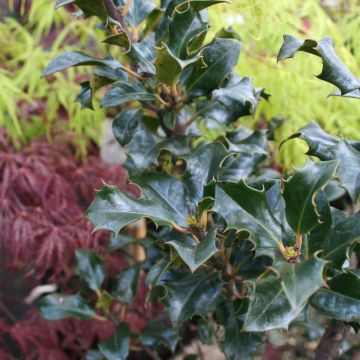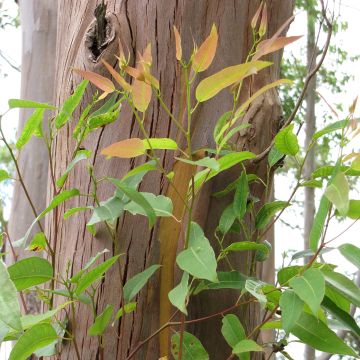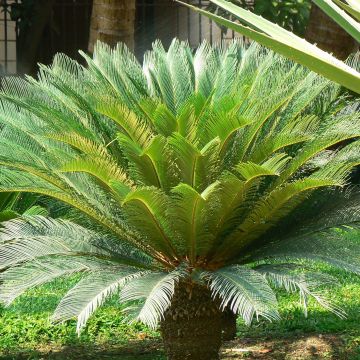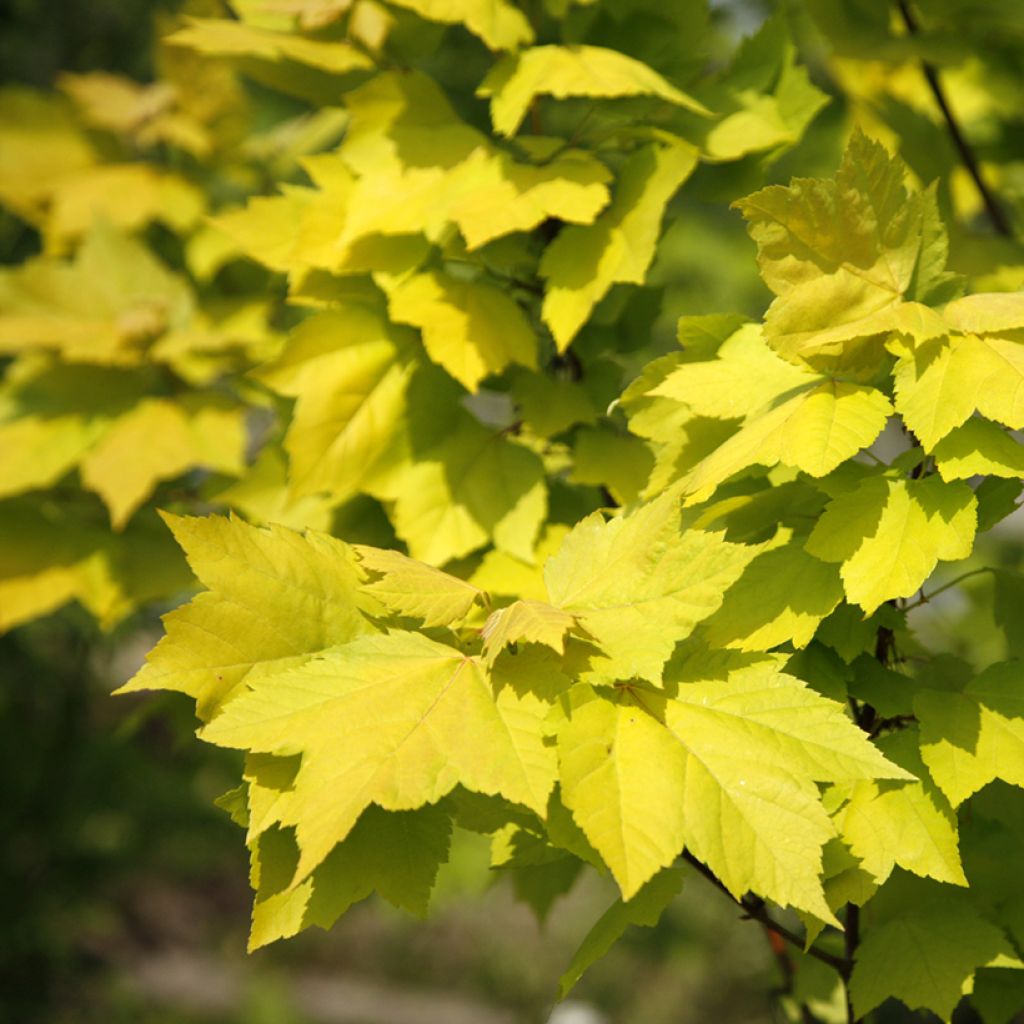

Acer rubrum Schocking Gold - Red Maple
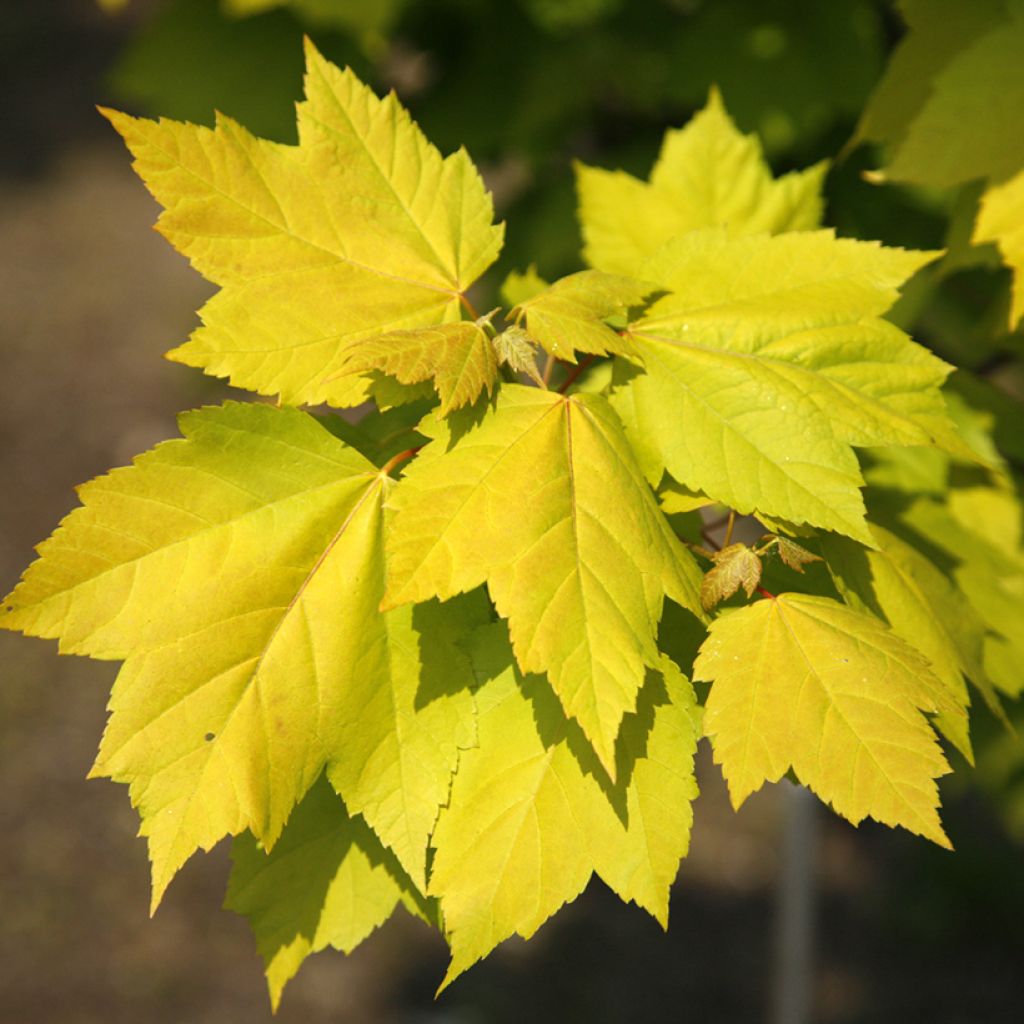

Acer rubrum Schocking Gold - Red Maple
Acer rubrum Schocking Gold - Red Maple
Acer rubrum Schocking Gold
Red Maple, Scarlet Maple, Swamp Maple
Why not try an alternative variety in stock?
View all →This plant carries a 24 months recovery warranty
More information
We guarantee the quality of our plants for a full growing cycle, and will replace at our expense any plant that fails to recover under normal climatic and planting conditions.
Oversize package: home delivery by special carrier from €6.90 per order..
Express home delivery from €8.90.
Delivery to Corse prohibited: UE law prohibits the import of this plant from mainland France to Corse as part of the fight against Xylella fastidiosa. Please accept our sincere apologies.
More information
Does this plant fit my garden?
Set up your Plantfit profile →
Description
Acer rubrum 'Shocking Gold' is a variety of red maple notable for its foliage of bright golden yellow in spring and flamboyant colours in autumn. It has a slow growth rate and eventually forms a tree of beautiful stature. It is best suited for parks or large gardens, in full sun.
Native to the Northeastern United States and Canada, the Acer rubrum is known by various names depending on the region, such as Canadian Maple, Red Maple, or Virginia Maple. It is a large forest tree belonging to the Sapindaceae family (formerly Aceraceae). The Canadian Maple can reach a height of 30 metres in its native habitat. This light and semi-shade loving species can live up to 200 years. It is very hardy (down to -30°C or even lower), but it does not tolerate wind and thrives in deep and moist soil, preferably acidic and clayey, where its autumn colours will be more intense. Its wood is commonly used in furniture making.
Acer rubrum 'Shocking Gold' was discovered around 1993 in North Carolina (USA) by Richard Schock, not far from his home in Boonville. The tree initially has an upright habit in its youth, and then its canopy widens, rounds, and becomes denser like that of the species. It has a rather slow growth rate. It will reach a height of 10 to 15 metres at the age of 25. Its bark is smooth and grey when young, but it cracks and flakes with age, revealing lighter layers underneath. The leaves are opposite on the branches and usually simple, although some may be trilobed or palmate, with three to five shallow lobes. They are oval to obovate, with a rounded base and a pointed apex. Their margin is regularly toothed, with fine and sharp teeth. They are smooth and slightly leathery, borne on sturdy reddish petioles. The colour of the leaves changes throughout the seasons: in spring, they emerge a bright yellow, then turn almost chartreuse in summer. In autumn, they take on shades ranging from yellow to red and orange before falling. This maple is appreciated for its reddish flowers in spring, followed by winged samaras that mature in summer.
Acer rubrum 'Shocking Gold' is an ornamental tree that can be used in various ways in large gardens. Its sunny colour is perfect for creating a focal point. It can be planted as a specimen tree on a lawn, where it will attract attention from spring to autumn. This maple can also be incorporated into a grove or a large hedge. To highlight its golden foliage, you can associate it with trees or large shrubs with purple foliage such as 'Black Lace' Elderberry 'Black Lace'. Plants like blue perennial geraniums or blue bellflowers, planted at its base, will create a contrasting carpet with the golden foliage of this maple. Acer rubrum 'Shocking Gold' can also be used to create spectacular autumn scenes by combining it with other trees and shrubs with colourful autumn foliage. Plants like sweetgum, Nyssa sylvatica, Persian Ironwood, or alternate-leaved dogwood will offer a symphony of autumn colours alongside this maple.
Finally, you can plant Acer rubrum 'Shocking Gold' in rows along a path or driveway, where it will create a golden arch and provide shade in summer.
Report an error about the product description
Plant habit
Flowering
Foliage
Botanical data
Acer
rubrum
Schocking Gold
Sapindaceae
Red Maple, Scarlet Maple, Swamp Maple
Acer rubrum Shoking Gold
Cultivar or hybrid
Other Acer - Maple tree
Planting and care
The 'Shocking Gold' red maple does not tolerate limestone soils, so it should be planted in acidic soil if possible, or at least neutral. In this case, make sure to enrich the planting hole with compost and organic matter mixed with the existing soil. Soak the container in a bucket for a good half hour before placing it in the properly sized planting hole (at least 60 cm on all sides, or even 80). Water generously after planting and ensure that the soil does not dry out during the growing season. Mulching above the root zone will help maintain soil moisture and regular watering in the summer.
Planting period
Intended location
Care
This item has not been reviewed yet - be the first to leave a review about it.
Striking foliage shrubs
Haven't found what you were looking for?
Hardiness is the lowest winter temperature a plant can endure without suffering serious damage or even dying. However, hardiness is affected by location (a sheltered area, such as a patio), protection (winter cover) and soil type (hardiness is improved by well-drained soil).

Photo Sharing Terms & Conditions
In order to encourage gardeners to interact and share their experiences, Promesse de fleurs offers various media enabling content to be uploaded onto its Site - in particular via the ‘Photo sharing’ module.
The User agrees to refrain from:
- Posting any content that is illegal, prejudicial, insulting, racist, inciteful to hatred, revisionist, contrary to public decency, that infringes on privacy or on the privacy rights of third parties, in particular the publicity rights of persons and goods, intellectual property rights, or the right to privacy.
- Submitting content on behalf of a third party;
- Impersonate the identity of a third party and/or publish any personal information about a third party;
In general, the User undertakes to refrain from any unethical behaviour.
All Content (in particular text, comments, files, images, photos, videos, creative works, etc.), which may be subject to property or intellectual property rights, image or other private rights, shall remain the property of the User, subject to the limited rights granted by the terms of the licence granted by Promesse de fleurs as stated below. Users are at liberty to publish or not to publish such Content on the Site, notably via the ‘Photo Sharing’ facility, and accept that this Content shall be made public and freely accessible, notably on the Internet.
Users further acknowledge, undertake to have ,and guarantee that they hold all necessary rights and permissions to publish such material on the Site, in particular with regard to the legislation in force pertaining to any privacy, property, intellectual property, image, or contractual rights, or rights of any other nature. By publishing such Content on the Site, Users acknowledge accepting full liability as publishers of the Content within the meaning of the law, and grant Promesse de fleurs, free of charge, an inclusive, worldwide licence for the said Content for the entire duration of its publication, including all reproduction, representation, up/downloading, displaying, performing, transmission, and storage rights.
Users also grant permission for their name to be linked to the Content and accept that this link may not always be made available.
By engaging in posting material, Users consent to their Content becoming automatically accessible on the Internet, in particular on other sites and/or blogs and/or web pages of the Promesse de fleurs site, including in particular social pages and the Promesse de fleurs catalogue.
Users may secure the removal of entrusted content free of charge by issuing a simple request via our contact form.
The flowering period indicated on our website applies to countries and regions located in USDA zone 8 (France, the United Kingdom, Ireland, the Netherlands, etc.)
It will vary according to where you live:
- In zones 9 to 10 (Italy, Spain, Greece, etc.), flowering will occur about 2 to 4 weeks earlier.
- In zones 6 to 7 (Germany, Poland, Slovenia, and lower mountainous regions), flowering will be delayed by 2 to 3 weeks.
- In zone 5 (Central Europe, Scandinavia), blooming will be delayed by 3 to 5 weeks.
In temperate climates, pruning of spring-flowering shrubs (forsythia, spireas, etc.) should be done just after flowering.
Pruning of summer-flowering shrubs (Indian Lilac, Perovskia, etc.) can be done in winter or spring.
In cold regions as well as with frost-sensitive plants, avoid pruning too early when severe frosts may still occur.
The planting period indicated on our website applies to countries and regions located in USDA zone 8 (France, United Kingdom, Ireland, Netherlands).
It will vary according to where you live:
- In Mediterranean zones (Marseille, Madrid, Milan, etc.), autumn and winter are the best planting periods.
- In continental zones (Strasbourg, Munich, Vienna, etc.), delay planting by 2 to 3 weeks in spring and bring it forward by 2 to 4 weeks in autumn.
- In mountainous regions (the Alps, Pyrenees, Carpathians, etc.), it is best to plant in late spring (May-June) or late summer (August-September).
The harvesting period indicated on our website applies to countries and regions in USDA zone 8 (France, England, Ireland, the Netherlands).
In colder areas (Scandinavia, Poland, Austria...) fruit and vegetable harvests are likely to be delayed by 3-4 weeks.
In warmer areas (Italy, Spain, Greece, etc.), harvesting will probably take place earlier, depending on weather conditions.
The sowing periods indicated on our website apply to countries and regions within USDA Zone 8 (France, UK, Ireland, Netherlands).
In colder areas (Scandinavia, Poland, Austria...), delay any outdoor sowing by 3-4 weeks, or sow under glass.
In warmer climes (Italy, Spain, Greece, etc.), bring outdoor sowing forward by a few weeks.

































